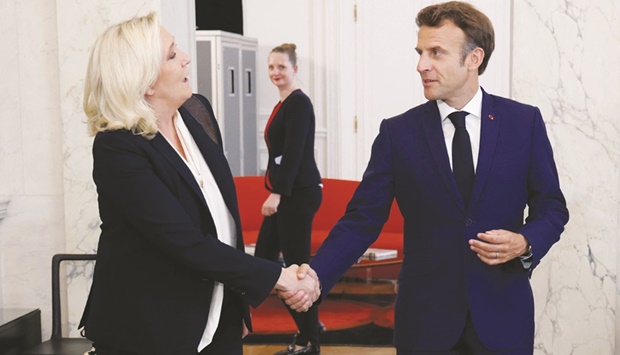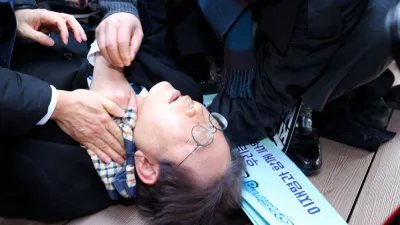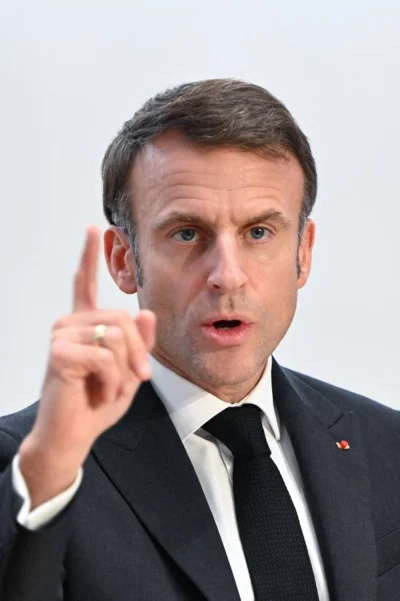French President Emmanuel Macron yesterday held talks with opposition leaders on ending the deadlock sparked by his failure to secure a majority in parliamentary elections, after rejecting an offer by the prime minister to resign.
Macron met right-wing, Socialist and Communist party chiefs at the Elysee, including rare talks with far-right leader Marine Le Pen, as he seeks solutions to a tricky situation that risks plunging his second term into crisis two months after it began.
The spectre of political paralysis and the breakthrough performance by the far-right under Le Pen has also raised questions over Macron’s leadership in Europe as he seeks to keep a prime role in dealing with the Russian invasion of Ukraine.
The Elysee said French Prime Minister Elisabeth Borne, blamed by some analysts for heading a lacklustre campaign, had offered her resignation to Macron but the head of state turned it down.
Macron believes the government needs to “stay on task and act” and the president will now seek “constructive solutions” to the political deadlock in talks with opposition parties, said a presidential official.
Macron started yesterday’s flurry of discussions by talking with Christian Jacob, head of the traditional right-wing the Republicans (LR), a party on the decline in recent months but which now may be courted by the president to give him a majority.
The options available to Macron range from seeking to form a new coalition alliance, passing legislation based on ad hoc agreements, or even calling new elections.
One option would be an alliance with the Republicans, which have 61 MPs.
But Jacob after the talks appeared to close the door on such a solution. “I told the president there was no question of entering into what could be seen as betrayal of our voters”.
“We will stay in opposition,” he added, while vowing his party would not block the work of institutions.
Macron had hoped to mark his second term as president with an ambitious programme of tax cuts, welfare reform and raising the retirement age. All that is now in question.
“What can he (Macron) do now?” said the headline in the Le Parisien daily. “Macron in an impasse,” was Le Figaro’s line.
Despite vowing a new method of politics after his April presidential election victory, Macron has remained characteristically remote and has made no public comment on the outcome of the parliamentary polls.
The Le Monde daily called it Macron’s great hesitation,” saying that the president was in no hurry to work out his post-election strategy.
While Macron’s Ensemble (Together) coalition remains the largest party in parliament after Sunday’s National Assembly elections, it fell dozens of seats short of keeping the absolute majority it has enjoyed for the last five years.
The NUPES left-wing alliance became the main opposition force but the coalition of Socialists, Communists, Greens and the hard-left France Unbowed faces an uphill struggle to retain unity.
Jean-Luc Melenchon, the France Unbowed chief who orchestrated the NUPES alliance, proposed Monday to make it a permanent left-wing bloc but the offer was immediately rejected by the three other NUPES parties.
In a snub to the president, Melenchon is believed to be sending representatives to Elysee talks with Macron today rather than going himself.
“I am neither hot nor cold” on Borne staying in power, said Melenchon, whose party has vowed to submit a no confidence motion against the premier at the beginning of July.
“All I have to do now is wait for the fruit to fall from the tree. This woman has no legitimacy. Zero. This is a democracy not a monarchy,” he added.
Socialist leader Olivier Faure, whose party is part of NUPES, adopted a more conciliatory stance after his meeting with Macron, saying his party is prepared to move forwards with the government if it takes measures on the key issue of purchasing power.
The far-right under Le Pen posted the best legislative performance in its history, becoming the strongest single opposition party with 89 seats, up from eight in the outgoing chamber.
Le Pen said changing the prime minister “would not change much”, urging Macron to “listen to what the French voters said”.
Even if Borne is to stay in her post for now, a cabinet shake-up is on the horizon after the health, environment and maritime ministers failed to win seats in the election and will now resign.

Far-right Rassemblement National leader and Member of Parliament Marine Le Pen (left) shakes hands with President Emmanuel Macron after talks at the presidential Elysee Palace in Paris yesterday. (AFP)


